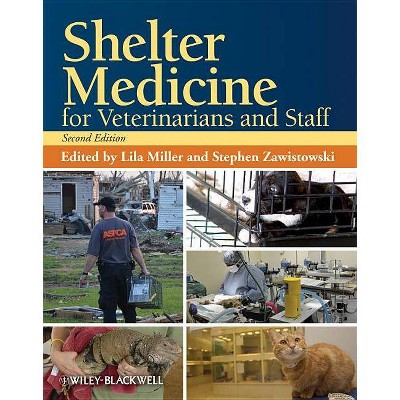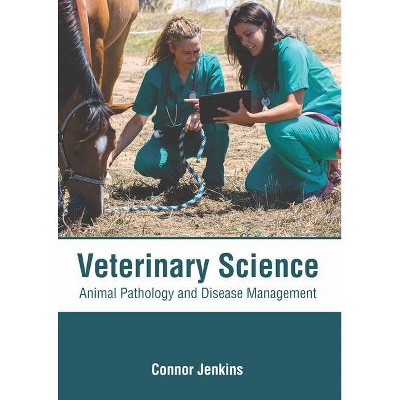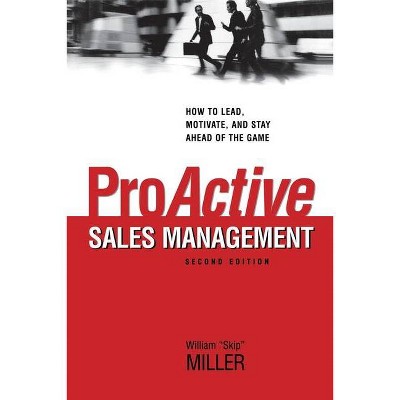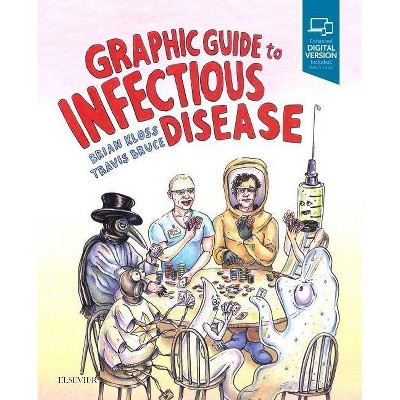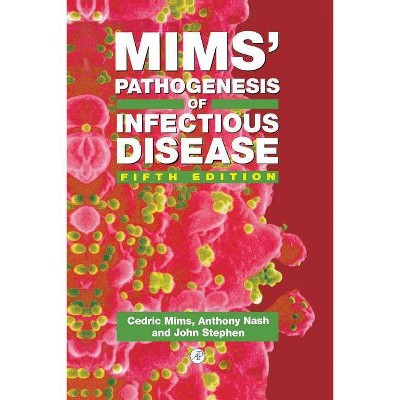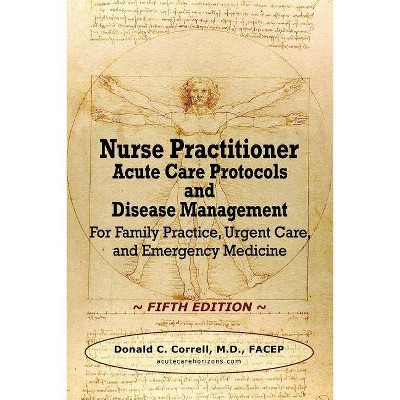Infectious Disease Management in Animal Shelters - 2nd Edition by Lila Miller & Stephanie Janeczko & Kate F Hurley (Paperback)
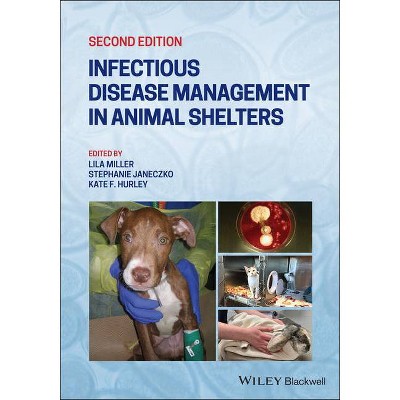
Similar Products
Products of same category from the store
AllProduct info
<p/><br></br><p><b> About the Book </b></p></br></br>"Since the publication of the first edition of Infectious Disease Management in Animal Shelters in 2009, research and practice in the field of shelter medicine have advanced significantly. This updated second edition of that seminal work provides the most up-to-date and comprehensive guide to preventing, managing, and treating infectious diseases affecting cats, dogs and exotic small companion mammals in animal shelters. Throughout the book, the authors--noted experts on the topic--bridge the gap between medicine (both individual and group) and management. The book is filled with practical strategies that draw on the latest research and evidence-based medicine as well as the authors' personal experience in the field. While the text highlights strategies for the prevention of illness and mitigation of disease spread, the book also contains practical information on treatment and considerations for adoption. Written for shelter veterinarians, managers, and workers, the revised second edition of Infectious Disease Management in Animal Shelters is the only book to focus exclusively on infectious diseases in the shelter setting, blending individual animal care with a unique herd health perspective"--<p/><br></br><p><b> Book Synopsis </b></p></br></br>Seit der Veröffentlichung der ersten Ausgabe von Infectious Disease Management in Animal Shelters 2009 haben Forschung und Praxis im Bereich der Tierheimmedizin beträchtliche Fortschritte gemacht. Diese aktualisierte zweite Auflage des bahnbrechenden Werks bildet den aktuellsten und umfassendsten Leitfaden in Bezug auf Vorbeugung von, Umgang mit und Behandlung von Infektionskrankheiten bei Katzen, Hunden und exotischen Kleinsäugern in Tierheimen. <p/> Ãœber das gesamte Buch hinweg gelingt es den Autoren ? ausgewiesenen Experten auf dem Gebiet ? eine BrÃ1/4cke zwischen der medizinischen Behandlung (von Einzeltieren und Gruppen) und dem Umgang mit den Krankheiten zu schlagen. Das Werk enthält zahlreiche praktische Strategien, die auf den neuesten Ergebnissen der Forschung und der evidenzbasierten Medizin sowie auf der persönlichen Erfahrung der Autoren in diesem Bereich beruhen. Neben Strategien zur Vorbeugung von Krankheiten und zur Eindämmung ihrer Ausbreitung bietet das Buch auch praktische Informationen rund um die Behandlung und fÃ1/4hrt Faktoren auf, die bei der Adoption zu berÃ1/4cksichtigen sind. Dieser wichtige Band: <br> * Ist das einzige Buch, das sich ausschließlich mit der Behandlung von Infektionskrankheiten in Tierheimen beschäftigt<br> * Enthält Richtlinien fÃ1/4r den allgemeinen Umgang mit Krankheiten bei Katzen und Hunden sowie zur Vorbeugung und Kontrolle der Krankheiten<br> * Basiert auf den zentralen Grundsätzen der Tierheimmedizin in Bezug auf eine tierfreundliche Populationskontrolle unter BerÃ1/4cksichtigung der Ziele Einsatz fÃ1/4r das Tierwohl, Rettung von Leben und Schutz der menschlichen Gesundheit<br> * Enthält ein neues Kapitel Ã1/4ber als Haustiere gehaltene exotische Säugetiere <p/> Die zweite Ausgabe von Infectious Disease Management in Animal Shelters richtet sich an Tierärzte, Tierheimleitungen und Mitarbeiter in Tierheimen und ist das einzige Werk, das sich ausschließlich mit Infektionskrankheiten in Tierheimen befasst, wobei die Betreuung von Einzeltieren mit einer einzigartigen Sicht auf die Herdengesundheit verbunden wird.<p/><br></br><p><b> From the Back Cover </b></p></br></br><p><b>The revised edition of the first text to explore infectious disease management in shelters</b> </p> <p>Since the publication of the first edition of <i>Infectious Disease Management in Animal Shelters</i> in 2009, research and practice in the field of shelter medicine have advanced significantly. This updated second edition of that seminal work provides the most up-to-date and comprehensive guide to preventing, managing, and treating infectious diseases affecting cats, dogs and exotic small companion mammals in animal shelters. </p> <p>Throughout the book, the authors--noted experts on the topic--bridge the gap between medicine (both individual and group) and management. The book is filled with practical strategies that draw on<i> </i>the latest research and evidence-based medicine as well as the authors' personal experience in the field. While the text highlights strategies for the prevention of illness and mitigation of disease spread, the book also contains practical information on treatment and considerations for adoption. This important text: </p> <ul> <li>Offers the only book on the topic of infectious disease management in shelters </li> <li>Presents guidelines for general management and disease control in cats and dogs</li> <li>Includes shelter medicine's core principles of humane population management in the context of supporting shelters' goals for preserving welfare and saving lives while also protecting human health</li> <li>Contains a new chapter on exotic companion mammals </li> </ul> <p>Written for shelter veterinarians, managers, and workers, the revised second edition of <i>Infectious Disease Management in Animal Shelters </i>is<i> </i>the only book to focus exclusively on infectious diseases in the shelter setting, with a unique herd health perspective. </p><p/><br></br><p><b> About the Author </b></p></br></br><p><b>The editors</b> </p> <p><b>Lila Miller</b>, BS, DVM, currently retired, is the former Vice President of Shelter Medicine at the American Society for the Prevention of Cruelty to Animals (ASPCA) in New York, New York, USA. She was also an adjunct assistant faculty member at the veterinary colleges at Cornell and the University of Pennsylvania, and co-editor of the first and second editions of the textbook Shelter Medicine for Veterinarians and Staff. </p> <p><b>Stephanie Janeczko, </b>DVM, MS, DABVP (Canine/Feline Practice, Shelter Medicine Practice), CAWA is the Vice President of Shelter Medicine Services and the Director of the Julie Morris Shelter Medicine Residency Program at the American Society for the Prevention of Cruelty to Animals (ASPCA) in New York, New York, USA. She also serves as the regent for the Shelter Medicine specialty under the American Board of Veterinary Practitioners. </p> <p><b>Kate F. Hurley</b>, DVM, MPVM, is Director of the Koret Shelter Medicine Program and Assistant Clinical Professor of Shelter Medicine and Small Animal Population Health for the School of Veterinary Medicine at the University of California in Davis, California, USA. </p> <p> </p>
Price History
Price Archive shows prices from various stores, lets you see history and find the cheapest. There is no actual sale on the website. For all support, inquiry and suggestion messages communication@pricearchive.us
